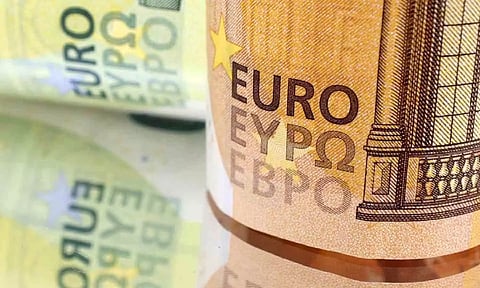

LONDON: Euro zone government bond yields fell on Thursday, breaking a four-day rising streak, but market participants remain concerned about inflation and the possible central bank response. Investors have adjusted their positioning before next week's ECB meeting, with markets increasing their bets on a 25 basis points (bps) rate hike but still pricing less than a 50% chance.
German industrial production fell slightly more than expected in July, confirming the challenges Europe's largest economy faces and bringing some relief to the recent bond selloff. Bond prices move inversely with yields. "The country indeed has problems that extend beyond a cyclical downturn, high energy prices and softer demand from China," said Holger Schmieding, chief economist at Berenberg.
"However, with record employment and the strongest fiscal position of all major advanced economies, the 'sick man' (of the euro area) label is not warranted, in our view," he added. Germany's 10-year government bond yield, the benchmark for the euro zone, dropped 2.5 bps to 2.63%, breaking a four-day rising streak. Earlier in the session it hit 2.664%, its highest level since Aug. 22.
Comments from Bank of France head Francois Villeroy de Galhau "deserve special attention, as he has often predicted the consensus view in the governing council", said Hauke Siemssen, rates strategist at Commerzbank. The Bank of France head said on Wednesday the ECB needs to persevere in its fight against inflation.
ECB policy hawks Peter Kazimir and Klaas Knot said on Wednesday, just hours before the bank goes into a week-long quiet period, that it should raise rates and that investors betting against a rate increase are possibly underestimating the likelihood of it happening. ECB euro short-term rate forwards are currently pricing in around a 40% chance of a 25 bps hike, from a 20% chance last week.
Italy's 10-year government bond yield, the benchmark for the euro area's periphery, fell 1.5 bps to 4.40%. The spread between Italian and German 10-year yields - a gauge of investor sentiment towards the euro zone's more indebted countries - was at 174 bps after briefly hitting its widest level since July 12 at 175.40.
Citi analysts recently said Italy and Portugal's yield spreads look too tight on their fundamental model based on consensus expectations for the countries' growth, budget balances and inflation. Warnings about resilient inflation pressures are coming from several directions.
Brent crude futures spiked earlier in the week after Saudi Arabia and Russia, the world's two top oil exporters, extended voluntary supply cuts to the year-end. They were falling on Thursday after a nine-session winning streak. U.S. Treasury yields were higher on Wednesday after economic data showed the services sector unexpectedly accelerated in August, indicating that inflation pressures remain firm.
The ECB's Consumer Expectations Survey provided mixed signals, with inflation expectations three years ahead rising to 2.4% from 2.3% in June, while long-term and short-term forecasts were declining, analysts said.